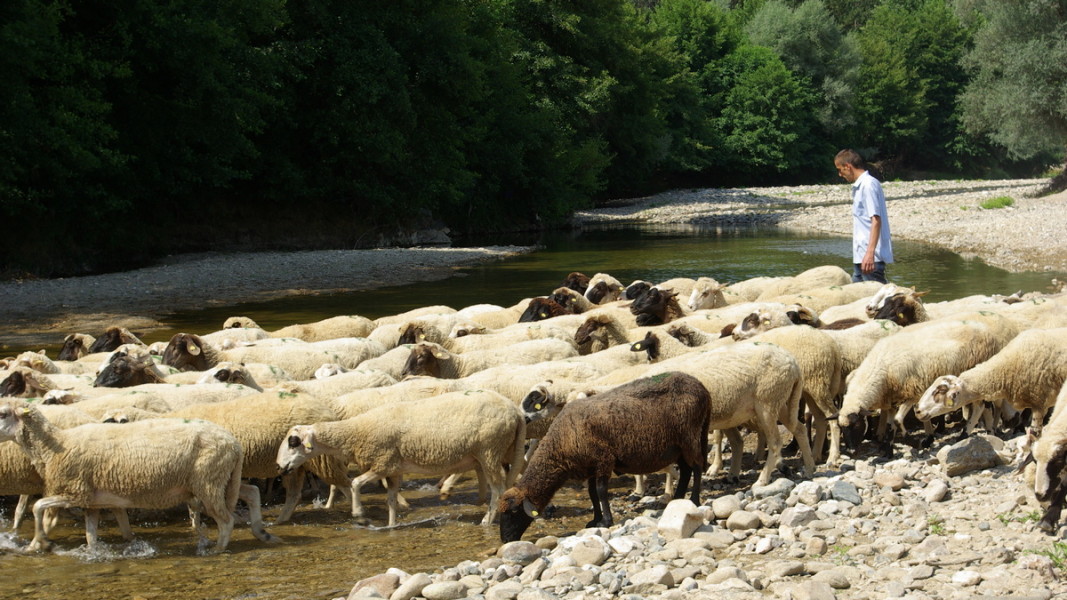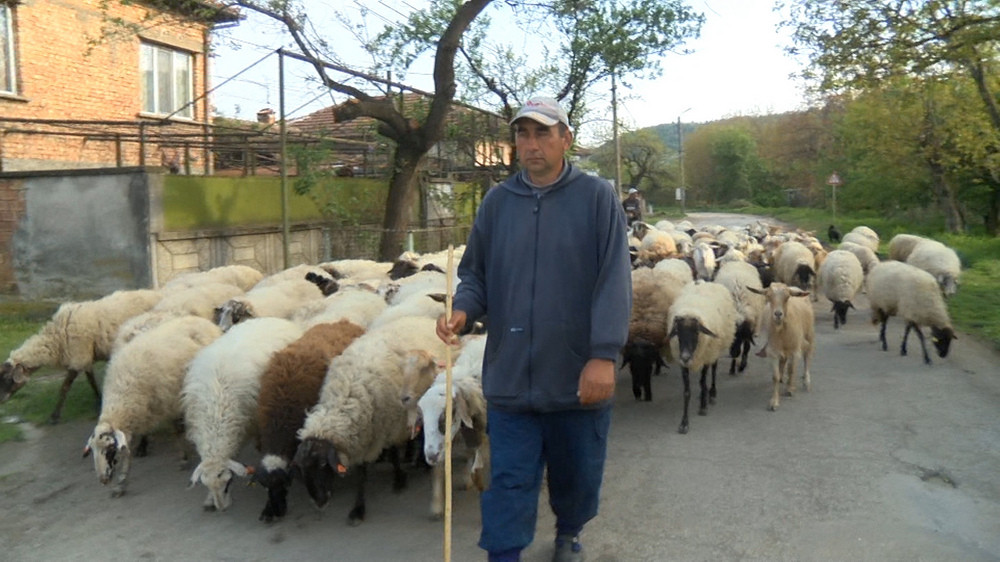There are no less than 120,000 virtual sheep and goats, for the breeding of which subsidies are being taken, yet there are no such animals on the farms. In the summer, Bulgaria’s National Sheep and Goat Breeding Association came out with an estimate that nearly BGN 20 million a year are drained via this practice. "The reason for these so-called “virtual animals” lies in the methodology by which pastures are distributed so far," Simeon Karakolev, chairman of the National Sheep and Goat Breeding Association, told BNR. The organization noticed that there was a discrepancy between the number of animals declared in the documents and their actual number, as the municipalities count the animals that appear in the register without making on-site inspections for correctly submitted information.
Recently, again on the air of the Bulgarian National Radio, breeders alerted about a concomitant problem caused by these "fictional animals", which appear only in the systems of the Bulgarian Food Safety Agency (BFSA), but not in reality. It consists in the fact that subsidies are also received for the pastures on which the virtual sheep are supposed to graze. "We give our best pastures to aliens. That is why we – the farmers have a proposal – to introduce sanctions for those clerks and officials who, under pressure or for some benefit, make an arbitrary interpretation of the law," Simeon Karakolev told BNR.

"Currently, there is no sanction anywhere in the law for an official who does not comply with it. It turns out that many officials in both municipalities and some of the regional directorates of Agriculture do not apply the law as prescribed. Nowhere is there a penalty envisaged for unfinished, unperformed or uncompleted activities, and accordingly no penalty for inaction. The fact that this happens in many places and there is a lot of evidence for such actions shows that the relevant chairmen of commissions, employees at a level that decides on the distribution of pastures, are motivated to apply this subjectivism. Those municipalities that apply the law correctly, whether it is good or bad, will not have any problem. The problem is in those municipalities where the law is not applied properly. But in the end, that's what the laws are about, they're for everyone to abide by them, they're not for interpretation or reflection."
With their proposal for personal accountability, the members of the National Sheep and Goat Breeding Association want to increase self-control at the local level, as the violations could be monitored by both the farmers themselves and the officials. According to Simeon Karakolev, it often happens now that even the mayor of the respective town or village does not know what livestock farms there are and what animals are kept on the territory administered by him.

"We rely a lot on the desire for transparency and publicity of the political leadership of the Ministry of Agriculture. All members of all parties represented in parliament have united around the importance and need for such a change, because the people who are suffering from this law at the moment belong to all political parties."
The upcoming parliamentary elections in the spring may be a chance in favour of farmers' demands. The fact is that by the end of November, the Ministry of Agriculture will coordinate the proposals made, and then they will have to go through all steps of the legislative apparatus way in the standing parliamentary committees.
Compiled by Gergana Mancheva
Photos: BTA and BGNES
The expected adoption of the single European currency from January 1, 2026 is one of the many topics dividing society. In addition to being a cause for political quarrels, the euro is also a cause for concern among some Bulgarian..
At the end of 2024, Bulgarians' wealth hit a record high of 1 trillion leva (€511.29 billion), which is five times higher than the gross domestic product. According to a study by the Expert Club on Economics and Politics, reported by BNR's Natalia..
Bulgarian President Rumen Radev extended an invitation to Japanese business to invest in Bulgaria . This happened during an economic forum in Tokyo organized by the Japan External Trade Organization JETRO . At the forum, Radev who is on..
In 2025, Bulgarian tourism maintains sustainable growth despite global challenges. According to analysts, a record number of foreign..
The base interest rate in Bulgaria is decreasing to 1.91% as of July 1, announced the Bulgarian National Bank. The base interest rate is dropping by..
At the start of the harvest season, Yanislav Yanchev, the Deputy Minister of Agriculture , predicted that the wheat would be of good quality. The country..

+359 2 9336 661
